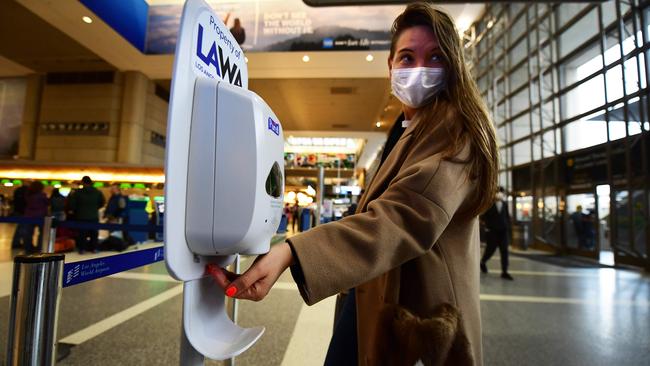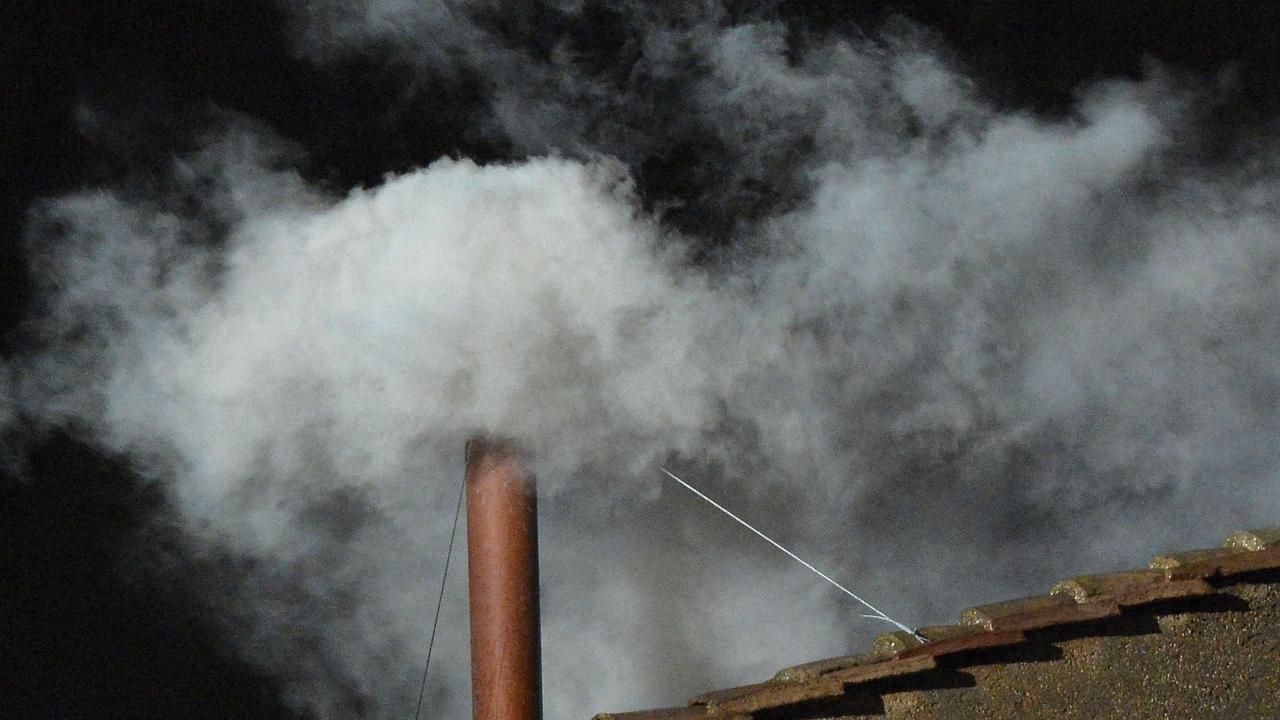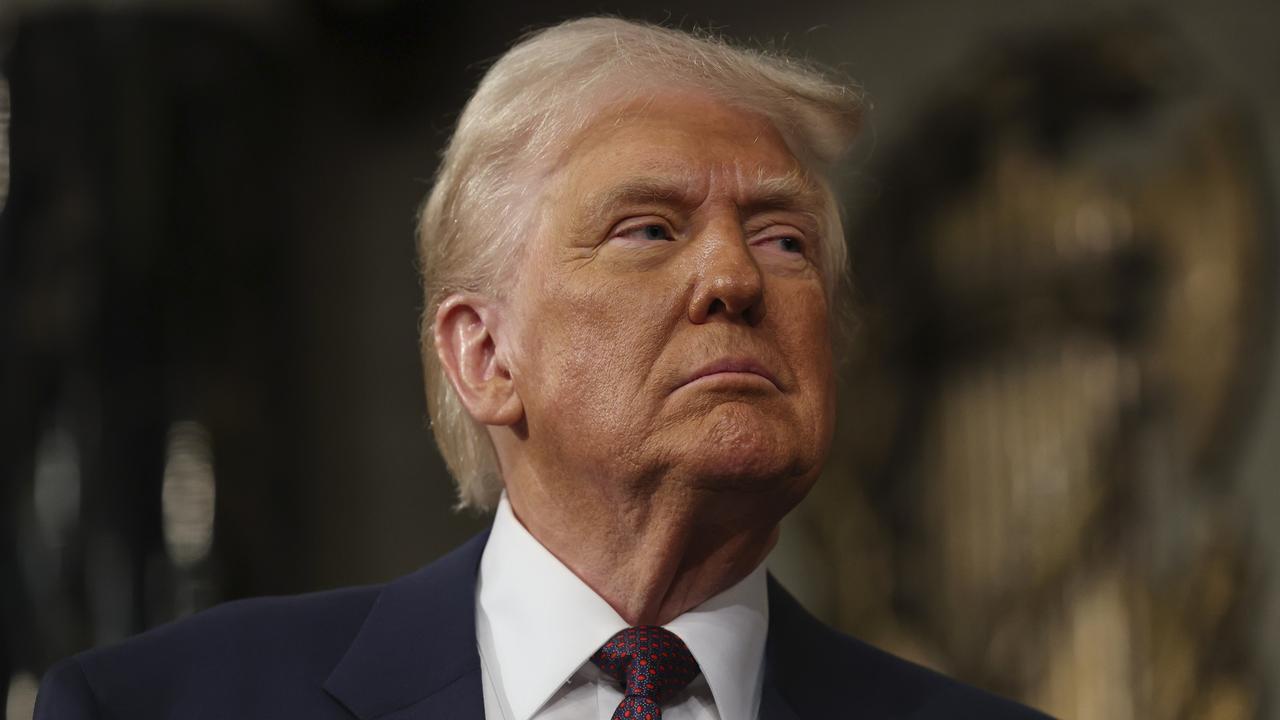Economists see risks of global recession
The US and world economies look increasingly likely to slip into recession due to the coronavirus outbreak, economists say.

The US and world economies look increasingly likely to slip into recession as expanding swathes of business activities battered by the coronavirus outbreak shutdown, economists warned on Thursday.
President Donald Trump’s announcement on Wednesday night of a 30-day ban on some travel to the US from Europe to contain the spread of the virus comes as global air traffic is falling and all of Italy and parts of many other countries are under quarantine.
The financial market rout is reverberating through the international financial system as investors retreat from risky assets. An average of nearly $US2bn ($3.2bn) a day has been pulled from emerging markets over the past six weeks, according to the Institute of International Finance — a development that could lead to countries running down their foreign reserves and eventually encountering debt problems.
“We are going into a global recession. The necessary measures to contain the spread of the virus make that unavoidable,” said Vitor Constancio, a former vice-president of the European Central Bank, on Twitter on Thursday.
In the US alone, “The chances of a recession are going way up,” said Michael Feroli, an economist at JPMorgan Chase.
The range of possible economic outcomes was wide, economist Lindsey Piegza of Stifle Nicolaus said on Thursday. Her best-case scenario: US output declines slightly in the second quarter of the year but rebounds quickly, with the economy growing at an annual rate of 1.3 per cent in the first half. Her worst-case outcome: output falls 2 per cent, at an annual rate, in the first half, then rebounds slightly in the second half.
The most likely outcome, she thinks, is that output will grow just 0.3 per cent in the first six months of the year.
A recession can take months to show up in economic data. Most likely, it will first become visible in sentiment readings, new claims for unemployment insurance benefits, and eventually in spending and investment data.
Throughout last week, US employers, for the most part, appeared to resist the urge to lay off workers. New jobless claims fell last week, to a historically low level of 211,000, the Labour Department said on Thursday.
But a report from IHS Markit last week showed that the business activity in the US service sector — representing a range of industries, from restaurants to healthcare providers — fell in February for the first time since 2013.
An economic contraction of at least one quarter is “inevitable, but it takes businesses a while to do things”, said Ian Shepherdson, chief economist at Pantheon Macroeconomics. “They don’t respond immediately by laying people off. The first thing they do is cut the pace of hiring rather than laying people off, but it’s coming.”
While a downturn is coming, he added, “how deep, how long, who knows?”
The overall impact on the US economy will depend on how quickly authorities can bring the virus under control. At this point, that was hard to predict, he said. His best guess, Mr Shepherdson said, was for a 2 per cent decline in growth in the second quarter and a flat reading for the third.
The ECB on Thursday was the latest central bank to undertake stimulus measures — including recent interest-rate cuts by the US Federal Reserve and Bank of England — that did little to calm markets.
The ECB said it would issue cheap loans to banks and buy more eurozone debt but didn’t cut its key interest rate, which is already below zero.
ECB president Christine Lagarde echoed other central bankers who have recently said there are limits to how much monetary policy can do in the current crisis and called on other policymakers to use fiscal policy, such as tax and government spending measures, to provide support.
“An ambitious and co-ordinated fiscal stance is now needed in view of the weakened outlook and to safeguard against the further materialisation of downside risks,” she said.
The International Monetary Fund, the institution that serves as the global lender of last resort, said in a briefing on Thursday that it had begun to field inquiries from countries that may need financial assistance. Earlier on Thursday, Iran, one of the countries hardest hit by the coronavirus, said that it had requested a $US5bn rescue program from the IMF.



To join the conversation, please log in. Don't have an account? Register
Join the conversation, you are commenting as Logout